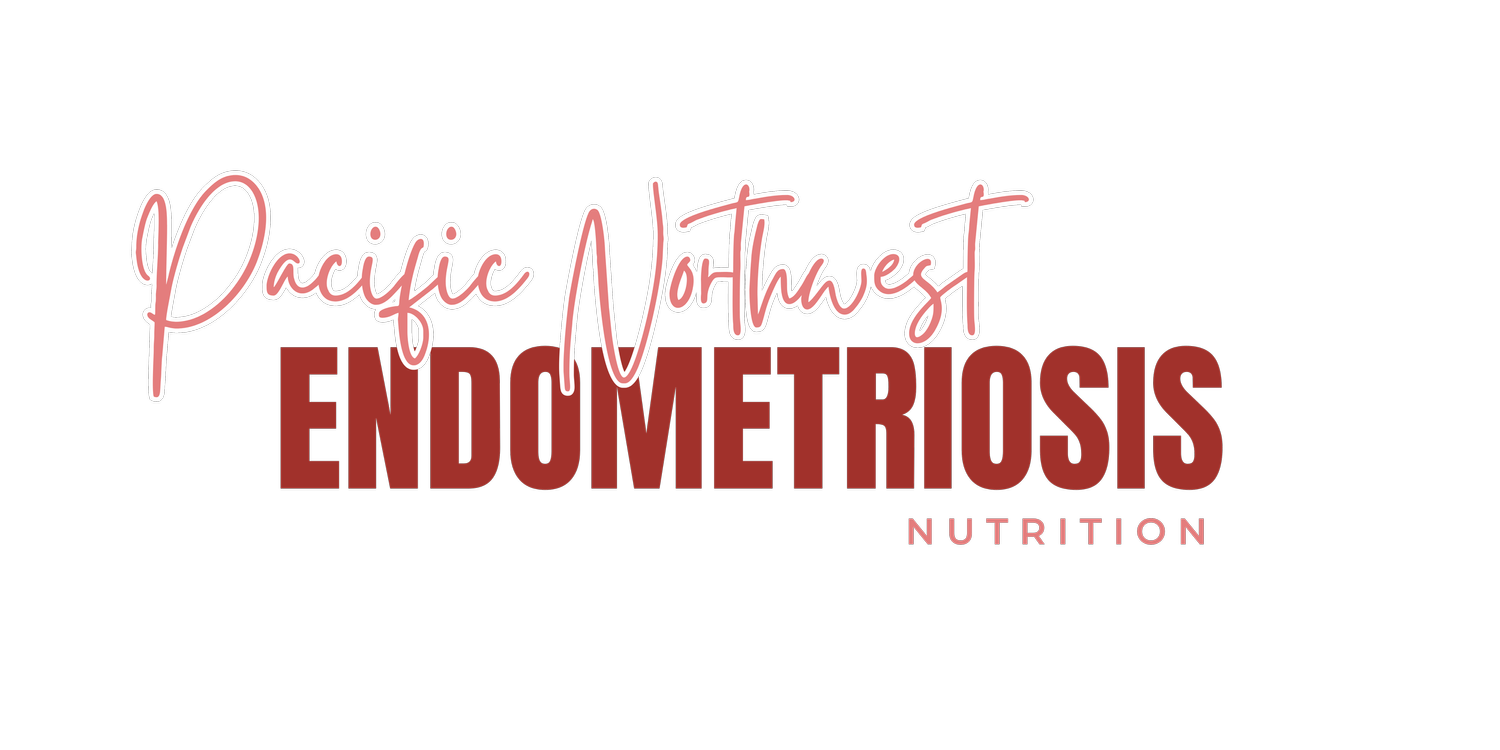Nutrition for Endometriosis: Understanding the Power of Omega-3 Fats
If you're one of the millions of women with endometriosis, you know the severe pelvic pain, bloating, heavy bleeding, and fatigue can be debilitating. While there is no cure, emerging research shows that increasing your intake of omega-3 fatty acids may help reduce endometriosis-related inflammation and pain.
Omega-3s: Nature's Anti-Inflammatory Warriors
Endometriosis thrives on inflammation. Omega-3 fatty acids, particularly EPA and DHA, act like firefighters, dampening this inflammatory response. They achieve this by:
Modulating Prostaglandins: These hormone-like molecules play a crucial role in pain perception. Omega-3s promote the production of "good" prostaglandins that have anti-inflammatory and pain-relieving properties while reducing the formation of "bad" ones that contribute to pain and cramping.
Supporting a Healthy Immune System: Chronic inflammation often goes hand-in-hand with an overactive immune system. Omega-3s help regulate the immune response, further reducing inflammation throughout the body.
Fueling Your Body with Omega-3 Powerhouses
Try eating omega-3-rich options several times per week:
Fatty Fish: Wild-caught salmon, sardines, mackerel, herring, and albacore tuna are all superstars. Aim for 2-3 servings per week.
Flaxseeds: These tiny seeds pack a punch! Grind them fresh and sprinkle them on salads, yogurt, or oatmeal.
Chia Seeds: Another fantastic source, chia seeds can be enjoyed soaked in plant-based milk for pudding or added to smoothies, yogurt, or cottage cheese.
Walnuts: A handful of walnuts is a satisfying and portable omega-3 snack.
Making Omega-3s a Mealtime Staple
Here are some tips to seamlessly integrate omega-3s into your diet:
Breakfast: Whip up a chia seed pudding with berries and a drizzle of nut butter.
Lunch: Top your salad with grilled salmon or sprinkle flaxseeds on a veggie wrap.
Dinner: Bake a sheet pan of halibut with roasted vegetables for a simple and flavorful meal.
Snacks: Keep a jar of homemade trail mix with walnuts, dried fruit, and dark chocolate chips on hand.
Omega-3 Supplementation: Considerations and Cautions
While getting omega-3s from food sources is ideal, supplementation can benefit some individuals, especially those who may have difficulty consuming enough omega-3-rich foods. However, it's essential to consider the following when choosing a supplement and discuss it with your doctor or registered dietitian:
Quality: Look for high-quality supplements tested for purity and potency. Choose brands that use molecular distillation to remove contaminants like mercury and PCBs.
Dosage: The appropriate dosage of omega-3 supplements can vary depending on individual needs and health status. Consult with a healthcare provider to determine the correct dosage for you.
Balance: Omega-3 fats work in conjunction with omega-6 fats in the body. While omega-3s have anti-inflammatory properties, omega-6s can be pro-inflammatory in excess. Aim to maintain a balance between omega-3 and omega-6 fats in your diet.
Blood Thinners: If you take blood thinners, be cautious with omega-3 supplements as they may increase bleeding risk.
A well-rounded diet and a healthy lifestyle are vital in managing endometriosis. Omega-3s are powerful, but they work best alongside other strategies like stress management, regular exercise, and adequate sleep.
By incorporating these tips and working with your healthcare team, you can harness the power of omega-3 fats to calm the endometriosis storm and reclaim your health.
Are you looking for more personalized guidance?
As a registered dietitian in Seattle, I can help you create a customized nutrition plan to manage your endometriosis and achieve your health goals. Contact me today for an appointment! I see clients virtually and accept commercial insurance in several states. Many insurance plans allow you to have unlimited nutrition visits at no cost!
This blog is intended to educate and inform and does not replace nutrition therapy or medical advice.
Sources:
Marcinkowska, A.; Górnicka, M. The Role of Dietary Fats in the Development and Treatment of Endometriosis. Life 2023, 13, 654. https://doi.org/10.3390/ life13030654


